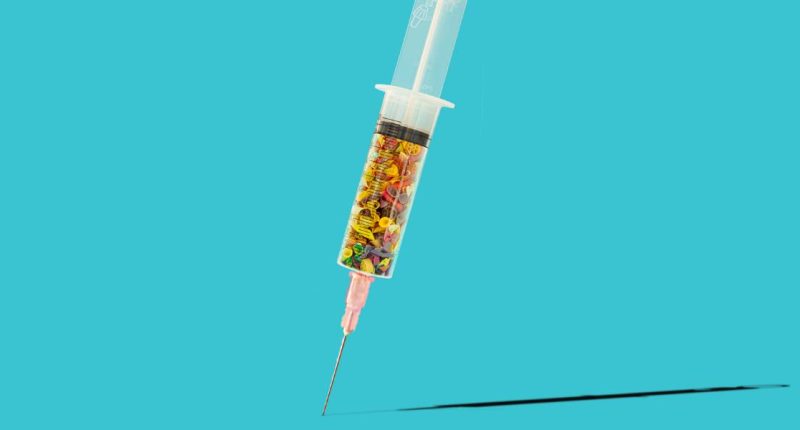The effect of a new weight loss drug on lowering blood pressure in adults with obesity has been described as “impressive” by the team behind new research.
A recent study of almost 500 people found that over the course of around eight months, tirzepatide considerably lowered the top number in a blood pressure reading – systolic blood pressure.
Systolic blood pressure is a stronger predictor of cardiovascular death than the bottom number in a blood pressure reading (diastolic).
- Type 2 diabetes, high blood pressure and obesity triggered by childhood stress
- Couples around the world often share high blood pressure
- Insomnia symptoms linked to greater risk of high blood pressure among women
Tirzepatide was approved in 2022 by the US Food and Drug Administration for the treatment of type 2 diabetes. A year later, it was given the green light for weight management for people with obesity or overweight and at least one health-related condition, such as high cholesterol or high blood pressure.
Commenting on the findings of this latest study, lead study author Dr James A. de Lemos, distinguished chair of cardiology and a professor of medicine at UT Southwestern Medical Center in Dallas, said: “Our findings indicate treating obesity with the weight loss medication tirzepatide may be an effective strategy for preventing or treating high blood pressure.
“Although tirzepatide has been studied as a weight loss medication, the blood pressure reduction in our patients in this study was impressive. While it is not known if the impact on blood pressure was due to the medication or the participants’ weight loss, the lower blood pressure measures seen with tirzepatide rivalled what is seen for many hypertension medications.”
Participants were divided up into groups which received once-weekly injections of either 5mg, 10mg or 15mg of tirzepatide, resulting in mean weight loss reductions of 15%, 19.5% and 20.9% respectively.
The key findings of the study, which ran from 2019 to 2022, were:
- For those taking 5mg of tirzepatide, there was an average reduction in systolic blood pressure of 7.4 mm Hg
- For those taking 10 mg of tirzepatide, there was an average reduction in systolic blood pressure of 10.6 mmHg
- For those taking 15 mg of tirzepatide, there was an average reduction in systolic blood pressure of 8.0 mm Hg.
Michael E. Hall, chair of the writing group for the American Heart Association’s 2021 scientific statement on weight-loss strategies for the prevention and treatment of hypertension, and chair of the department of medicine at the University of Mississippi Medical Center, commented: “Overall, these data are encouraging that novel weight-loss medications are effective at reducing body weight and they are also effective at improving many of the cardiometabolic complications of obesity including hypertension, type 2 diabetes and dyslipidemia, among others.
- 1500% surge in semaglutide overdose reports
- Man arrested on suspicion of selling unauthorised semaglutide
- Wegovy effect: Nestle launching new products for people using semaglutide jabs
“While the impact of each of these beneficial effects is individually important, many of these obesity-related complications act synergistically to increase the risk of cardiovascular disease.
“Thus, strategies that mitigate multiple obesity-related complications may reduce the risk of cardiovascular events.
“Additional studies will be necessary to determine the long-term impact on cardiovascular events such as heart attack and heart failure. Also, studies are needed to investigate what happens to blood pressure when medications like tirzepatide are discontinued – does the blood pressure rebound and go back up, or does it remain lowered?”




